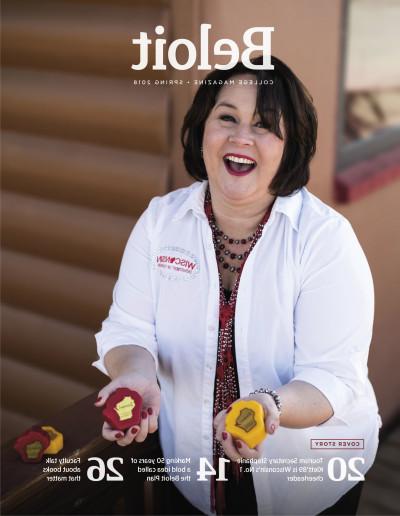Free Expression and the Marketplace of Ideas

Adults are such snowflakes!
But here is the rest of the story. The survey also found that among college students, 72 percent said that colleges should not be able to establish policies restricting political views that are upsetting or offensive to certain groups. Yet, 69 percent said that colleges should be able to establish policies that restrict the use of slurs and other language that are intentionally offensive to certain groups. Hmmmm.
We should pay attention to that last response in particular as we navigate the issue of free speech at Beloit, and we should also be asking ourselves what we, as a college, can do differently and better, when even the top colleges in the country have crafted imperfect policies around freedom of expression.
The most compelling argument for freedom of speech is probably contained within the “marketplace of ideas” thesis. As this argument goes, worse ideas will be driven from the idea marketplace by better ideas in the same way that less efficient firms are driven from goods and services markets by more efficient firms. Freedom of entry into the marketplace—whether the markets for ideas or goods and services—is the key. As an economist, I admit to a healthy affinity for the direction of this thinking. No wonder the University of Chicago with its army of free-market Nobel laureates holds pride of place with those who favor this line of reasoning.
But the University of Chicago model is remarkably silent about a long history on American college campuses of specific subsets of society not being allowed to enter the ideas marketplace either at all or as full-blown members. If voices are systemically missing or diminished within the marketplace of ideas, it is not at all obvious that the markets will “clear” (i.e. arrive in a desirable place). The existence of barriers to entry creates a potential market failure. That is, there will likely be systemic instances, maybe many of them, where bad ideas are not driven out by good ideas in any sort of timely way.
In goods and services markets, when there are barriers to entry, a regulatory solution is often proposed. Systemic silencing of particular voices, in a similar vein, could justify regulatory measures. Isn’t this all that (69 percent of) today’s college students are really saying? If we cannot create a credible campus model that gives historically marginalized groups an equal voice in the marketplace of ideas, we should consider a regulatory model that restricts the ability of others to discredit the humanity of members of those marginalized groups.
Recognition of this tension is not new to higher education. In 1974, Yale University took up the question of freedom of speech on private college campuses [see The Report of the Committee on Freedom of Expression at Yale chaired by C. Vann Woodward, Sterling Professor of History]. While recognizing, “If freedom of expression is to serve its purpose, and thus the purpose of the university, it should seek to enhance understanding. Shock, hurt, and anger are not consequences to be weighed lightly. No member of the community with a decent respect for others should use, or encourage others to use, slurs and epithets intended to discredit another’s race, ethnic group, religion, or sex.” Even still, they ended up in the same place as Chicago. They concluded (with dissent) that freedom of expression had a higher order value than any other at Yale, even with its potential costs.
In the last few years, increased political Balkanization in the United States has heightened our awareness to claims of political “silencing.” Among other things, FIRE, the watchdog organization, has developed a database of campus “disinvitations” that is worth looking at, if for no other reason than to see the eclectic array of reasons for disinvitations.
So where does that leave Beloit College? We have not engaged ourselves as a college about our institutional position on free inquiry and freedom of . We have some policies that are mostly Chicago and Yale-ish but pretty well buried among many other policies. There is little in the way of an articulated rationale for what we do.
In a world in which constructive dialogue is so rare and in which the essential human skills of listening and hearing are in such short supply, it is probably a good time for the college to undertake this conversation. As a starting point, I ask any of you reading this magazine to send me your thoughts. I am certain I will learn a great deal from those of you willing to help. And, stay tuned for more.
From here at Chapin’s cluttered desk,
—President Scott Bierman
presidentsoffice@firstnews-extra.com




